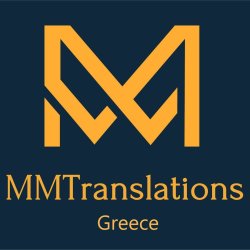
NEWS
About the Greek Language

What do these words have in common?
|
glossa |
Allegory |
deixis |
|
logos |
Synergy |
polyglossy |
|
grammar |
morphological |
glossary |
|
paragraph |
dialogue |
dialect |
|
alphanumeric |
criterion |
alphabetical |
|
metaphrasis |
basis |
orthography |
|
meta-phrase |
emphasis |
etymology |
|
para-phrase |
rhetoric |
lixicon |
|
paraphrasis |
analyses |
encyclopaedia |
|
monoglot |
phonetics |
diphthongs |
|
polyglot |
didactic |
digraphs |
|
metaphor |
idea |
exegesis |
|
gender |
method |
hypothesis |
|
nous |
style |
character |
|
KUDOS |
||
They are all of Greek origin and they are a small sample of the more than 150.000 English words derived from the Greek language.
Greek (modern Ελληνικά, romanized: Elliniká, ancient Ἑλληνική, Hellēnikḗ) is an independent branch of the Indo-European family of languages, native to Greece, Cyprus, Albania, other parts of the Eastern Mediterranean and the Black Sea. It has the longest documented history of any living Indo-European language, spanning at least 3,400 years of written records.[2] Its writing system is the Greek alphabet, which has been used for over 2,600 years; previously, Greek was recorded in writing systems such as Linear B and the Cypriot syllabary.[3] The alphabet arose from the Phoenician script and was in turn the basis of the Latin, Cyrillic, Armenian, Coptic, Gothic, and many other writing systems.
The Greek language holds an important place in the history of the Western world.[4] Beginning with the epics of Homer, ancient Greek literature includes many works of lasting importance in the European canon. Greek is also the language in which many of the foundational texts in science and philosophy were originally composed. The New Testament of the Christian Bible was also originally written in Greek.[5][6] Together with the Latin texts and traditions of the Roman world, the Greek texts and Greek societies of antiquity constitute the objects of study of the discipline of Classics.
During antiquity, Greek was by far the most widely spoken lingua franca in the Mediterranean world. It eventually became the official language of the Byzantine Empire and developed into Medieval Greek.[7] In its modern form, Greek is the official language of Greece and Cyprus and one of the 24 official languages of the European Union. It is spoken by at least 13.5 million people today in Greece, Cyprus, Italy, Albania, Turkey, and the many other countries of the Greek diaspora.
Greek roots have been widely used for centuries and continue to be widely used to coin new words in other languages; Greek and Latin are the predominant sources of international scientific vocabulary.
Reference: https://en.wikipedia.org/wiki/Greek_language

